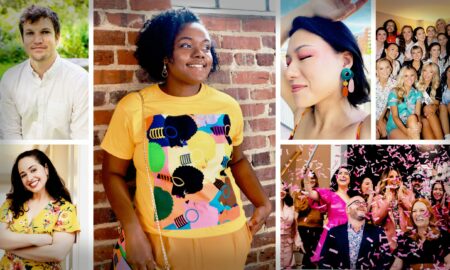Today we’d like to introduce you to LaTosha Gibson.
Hi LaTosha, thanks for sharing your story with us. To start, maybe you can tell our readers some of your backstory.
Our chapter affiliate, Triangle American Descendants of Slavery (ADOS), was launched in August 2019 as an offspring of the American Descendants of Slavery (ADOS) Movement that was started by co-founders Yvette Carnell and Antonio Moore. We had our first town hall on “What is the Black Wealth Gap” in August 2019. We followed up with our second town hall in October 2019 in Raleigh, NC, and held our first general body meeting in May 2020. In addition to conducting town halls and general body meetings, we have also canvassed at major events such as the MLK Parade in Durham, NC, 2020, and recently the Bimbé Festival in Durham, 2022.
During 2019-2022, our chapter has been involved in several campaigns within the movement and under the ADOS Advocacy Foundation. Such campaigns have included the awareness of HR 40, support of the Civil Rights Act of 1866 (the National Association of African American-Owned Media and Black-owned Entertainment Studios Networks, Inc. (ESN) vs Comcast), and the OMB #ClaimTheName campaign for a new ethnic designation for ADOS.
Would you say it’s been a smooth road, and if not, what are some of the biggest challenges you’ve faced along the way?
When we first started, there was great energy and enthusiasm regarding the movement and the case for reparations. We had good attendance for our first town hall and an even better engagement for our second town hall. However, the pandemic occurred before our first general body meeting, which we planned to have in March 2020. During that month, all three major cities (Durham, Raleigh, Chapel Hill) had decided to shut down in addition to other metropolitan areas in North Carolina. As a result, we lost much momentum for our chapter during this period. It would not be until a year of conducting Zoom meetings and an aggressive social media push after that that we would recapture some of this energy. Moreover, getting people to understand the data and how it impacts their daily lives and the lives of their loved ones has also been a challenge. Everyone likes a success/feel-good story, but the wealth data from the federal reserve paint a different picture that most people don’t understand when it comes to wealth and what it means to thrive in America as a community.
However, we are no w on the verge of a new chapter. The ADOS Advocacy Foundation will soon open for official membership and will formally launch chapters nationwide. Our chapter affiliate will be grandfathered under the umbrella of the ADOS Advocacy Foundation. As we continue to educate people in our community on the Black Wealth Gap and find new ways of delivering this information, we believe more people will be receptive to our message.
Appreciate you sharing that. What else should we know about what you do?
My background is in engineering and energy research. I’m transitioning into Radiology but remain open to other research and consulting opportunities within the energy field. Although I am proud of my Ph.D. work regarding coal gasification, I am most proud of the Infrastructure Plan I co-authored for the ADOS Advocacy Foundation, which is currently listed on the website. Outside of my advocacy work, I’m active at my Toastmasters chapter, “Speak Up!” in Chapel Hill, NC.
Are there any apps, books, podcasts, blogs, or other resources you think our readers should check out?
For podcasts, I listen to Breaking Brown, Tonetalks, and NPR.
For books, I prefer information that helps in time management and engagement. Therefore, my list includes:
“Organize Tomorrow Today: 8 Ways to Retrain Your Mind to Optimize Performance at Work and in Life”
“Blue Ocean Strategy, Expanded Edition: How to Create Uncontested Market Space and Make the Competition Irrelevant”
“The Art of Insubordination: How to Dissent and Defy Effectively”
For inspiration on an annual basis, I read the following:
“Where Do We Go from Here: Chaos or Community?”
“The Half Has Never Been Told: Slavery and the Making of American Capitalism,”
“The Color of Money: Black Banks and the Racial Wealth Gap”
Contact Info:
- Website: https://www.adosfoundation.org/
- Instagram: https://www.instagram.com/triangleados/
- Facebook: https://www.facebook.com/TriangleADOS
- Twitter: https://twitter.com/ados_triangle
Image Credits
New York Times











